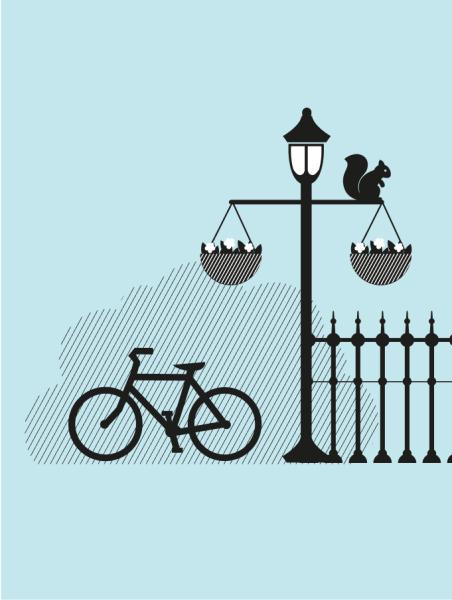5 reasons why some homes sell quickly while others sit on the market

No matter whether the market is busy or going through a quieter spell, you’ll always see some homes selling in just a few weeks or even days, while others sit there for months. And the longer a home is up for sale, the less likely it is to achieve its market value because of the perception that there’s something wrong with it, or that it’s simply overpriced.
In fact, there are a variety of factors that can contribute to a home not selling - here are five of the most common ones:
1. Priced incorrectly
While properties do generally increase in value over time, the market doesn’t move at a constant rate. Prices can go down as well as up in the short term, and the reality is that average prices have barely moved in the past three years.
Between August 2022 and August 2025, the average UK house price only went up by around £4,000 / 1.5%, and flats and maisonettes have actually fallen in value by the same figure, which equates to an almost 2% drop.
In addition, every area has micro-markets, and just because one house in a neighbourhood has sold at a certain price, it doesn’t necessarily follow that a similar one a few streets away is worth the same. To arrive at an accurate valuation, you need to really understand economic trends and the specific local supply and demand at the time a property is going on the market.
Nevertheless, because people believe the price of their much-loved home is always rising, vendors will often have a particular value in mind, and some will insist their home is advertised at that price - at least initially.
In our experience, overpricing and ‘testing the market’ is a huge mistake because the first couple of weeks of marketing are when you get the greatest interest from the most suitable buyers. If they think you’re being unrealistic, they may not want to view, and if your listing price online has taken you from one search bracket into the next – for example, if the true value is £320,000, but you’ve listed at £340,000 - it might not even appear in potential buyers’ results. Even when the price is reduced, buyers are often still suspicious that you’re asking for more than the property is really worth.
Research from Rightmove found that sellers are twice as likely to find a buyer if they accept an offer on the original listing price, and if a property needs to be reduced, it will take twice as long to sell. So, listing at a realistic price is fundamental to getting a quick sale.
2. Supply is higher than demand
If there are lot of similar homes for sale at the same time and demand from buyers isn’t matching supply, it can be very tricky for sellers. Even if the price is reduced to encourage viewings, with so much choice and plenty of people desperate to sell, buyers will often make low offers. Sellers naturally want to hold out for as close to their asking price as possible, and that means their home spends longer on the market.

3. Half and half in terms of condition
Most buyers want a home that’s either ready to move into and doesn’t need any work, or a complete renovation project. So, if a property is only half done up or is just a bit tired throughout, it can take longer to sell simply because there’s a smaller pool of buyers out there.
On top of that, as a general rule of thumb, buyers will tend to double the cost of any work required and take that off their offer. That means it’s common for ‘half and half’ homes to get multiple offers that simply aren’t acceptable to the vendor, and so these properties often sit on the market while they wait for the right buyer.
4. Something off-putting nearby
Some properties are perfectly good, attractive homes in themselves, but there’s something nearby that puts off the majority of potential buyers. That could be a power line overhead, a railway line at the bottom of the garden or a busy pub directly across the road. And while the pricing should take into account the negative aspects, it does still sometimes take a while to find a buyer, simply because you’re marketing to a small pool of people.
5. Legal and ownership complications
When properties have an extra layer of legal considerations, they often take longer to sell, either because of the time it takes for administration of the paperwork, or because buyers are put off and the sale falls through. Some examples:
• It’s a probate sale and there’s either a hold up with probate being granted or there’s an issue with multiple beneficiaries not agreeing on various aspect of the marketing and selling.
• There’s are lease complications or issues with a third-party management company.
• The property may have shared access, a right of way across some part of the property or a ‘flying freehold’ over an adjoining building.
• The property is listed and there are restrictions and onerous associated obligations.
In these cases, it’s worth considering having the legals done upfront – before the property is marketed. Although this may incur a cost, it could reduce the chance of the purchase/sale falling through and speed up the transaction by months.
In all these cases, pricing the property correctly and marketing it effectively to reach appropriate buyers is essential to getting a quick sale. For that, you need to work with a qualified agent that really understands the market. As professional members of Propertymark, our teams receive ongoing professional training, and we have become known for our exceptional knowledge of both the local area and the wider property market.
If you are thinking of selling, just get in touch with your nearest branch and one of our sales experts will be very happy to arrange a market appraisal.
Looking for advice?
If you're looking to let or sell your property, we can help. Get in touch with your local branch or book in for a property valuation.

Contact Us
Got a question, general enquiry or something else?

